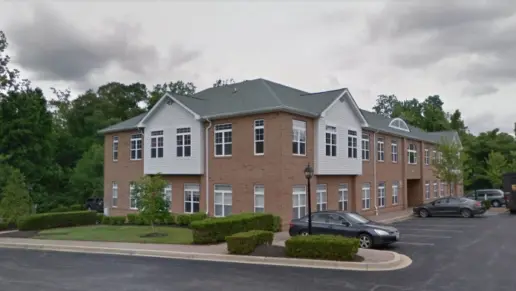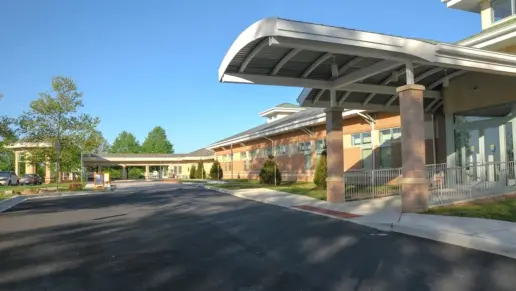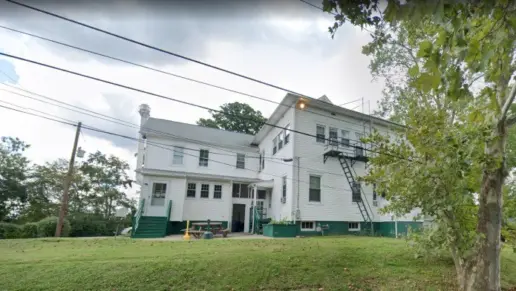About Suburban Hospital – Behavioral Health Services
Suburban Hospital - Behavioral Health Services, located in Bethesda, Maryland, provides drug rehab services for young adults and adults. They offer inpatient treatment, a partial hospitalization program, an intensive outpatient program, outpatient treatment, and aftercare programs. Services are available in multiple languages.
The inpatient program features 16 beds for clients requiring stabilization. A case management team provides 24/7 supervision and introduces a customized treatment plan for the clients’ recovery.
Partial hospitalization is a highly structured program that meets five days a week for over six hours each day. Psychodynamic therapy, peer support, and medication management are provided. Lunch is included.
The intensive outpatient program meets three days a week for over six hours each day. This program is for those who are able to successfully receive treatment while meeting regularly, yet with enough flexibility to continue to engage in personal and professional responsibilities. Services can include education workshops, relapse prevention, and life skills development.
The outpatient program meets as an aftercare program where continued care is provided through groups and individual therapy.
Suburban Hospital offers care and support for all alumni. Referrals may be made to other centers or outside facilities.
Suburban Hospital is accredited by The Joint Commission.
They offer self pay and financing options. The center accepts Medicare (but not Medicare Advantage) and is in network with most major insurance carriers. Please verify your coverage and out of network benefits.
Facility Overview
Latest Reviews
Rehab Score
Gallery
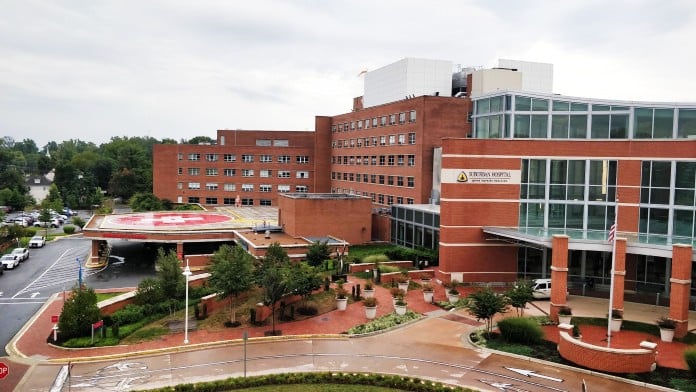
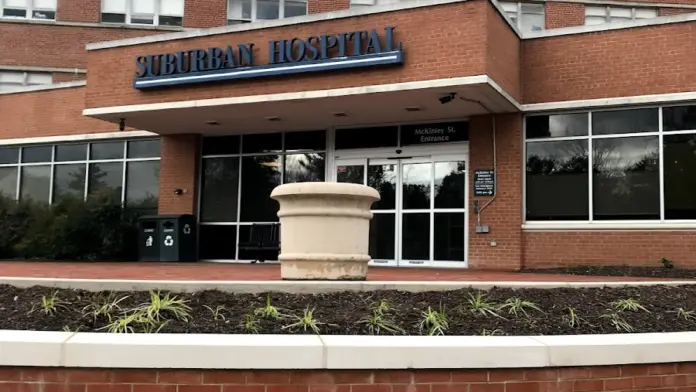
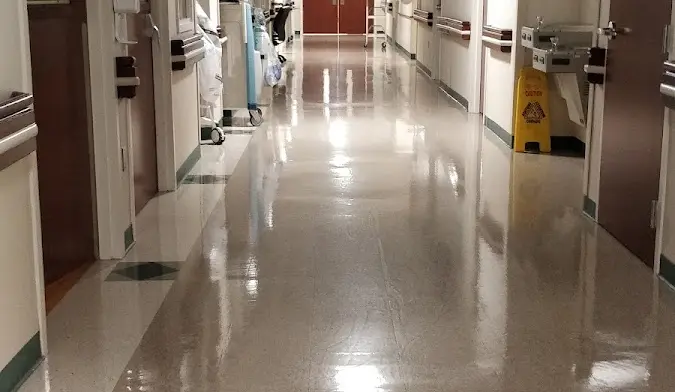
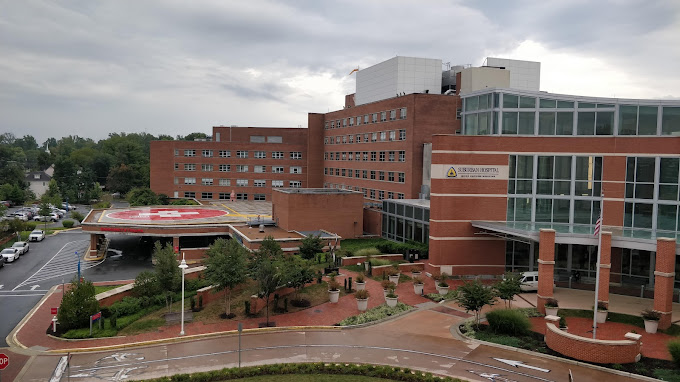
Location
Accepted Insurance
Other Forms of Payment
Medicaid is a state based program that helps lower-income individuals and families pay for healthcare. Medicaid covers addiction treatment so those enrolled can use their coverage to pay for rehab. When a program accepts Medicaid the client often pays very little or nothing out of their own pocket.
Private insurance refers to any kind of healthcare coverage that isn't from the state or federal government. This includes individual and family plans offered by an employer or purchased from the Insurance Marketplace. Every plan will have different requirements and out of pocket costs so be sure to get the full details before you start treatment.
Self-pay involves paying for treatment out of your own pocket. You can use savings or credit, get a personal loan, or receive help from family and friends to fund your treatment. If you don't have insurance or your insurance plan doesn't cover a specific program, self-pay can help ensure you still get the care you need.
Medicare is a federal program that provides health insurance for those 65 and older. It also serves people under 65 with chronic and disabling health challenges. To use Medicare for addiction treatment you need to find a program that accepts Medicare and is in network with your plan. Out of pocket costs and preauthorization requirements vary, so always check with your provider.
Military members, veterans, and eligible dependents have access to specific insurance programs that help them get the care they need. TRICARE and VA insurance can help you access low cost or no cost addiction and mental health treatment. Programs that accept military insurance often have targeted treatment focused on the unique challenges military members, veterans, and their families face.
Addiction Treatments
Levels of Care
Treatments
The goal of treatment for alcoholism is abstinence. Those with poor social support, poor motivation, or psychiatric disorders tend to relapse within a few years of treatment. For these people, success is measured by longer periods of abstinence, reduced use of alcohol, better health, and improved social functioning. Recovery and Maintenance are usually based on 12 step programs and AA meetings.
Once a person has become addicted to a substance, drug rehab in Maryland is often necessary to overcome that addiction. These programs provide the tools individuals need to manage the physical, mental, and emotional issues involved and begin a successful recovery journey.
A combined mental health and substance abuse rehab has the staff and resources available to handle individuals with both mental health and substance abuse issues. It can be challenging to determine where a specific symptom stems from (a mental health issue or an issue related to substance abuse), so mental health and substance abuse professionals are helpful in detangling symptoms and keeping treatment on track.
Opioid rehabs specialize in supporting those recovering from opioid addiction. They treat those suffering from addiction to illegal opioids like heroin, as well as prescription drugs like oxycodone. These centers typically combine both physical as well as mental and emotional support to help stop addiction. Physical support often includes medical detox and subsequent medical support (including medication), and mental support includes in-depth therapy to address the underlying causes of addiction.
Programs




Clinical Services
Cognitive behavioral therapy in Maryland emphasizes your current life rather than what has happened in the past. Your therapist will help you develop methods to deal with current and future challenges so you can cope in healthy ways that don't involve substances.
Group therapy is any therapeutic work that happens in a group (not one-on-one). There are a number of different group therapy modalities, including support groups, experiential therapy, psycho-education, and more. Group therapy involves treatment as well as processing interaction between group members.
In individual therapy, a patient meets one-on-one with a trained psychologist or counselor. Therapy is a pivotal part of effective substance abuse treatment, as it often covers root causes of addiction, including challenges faced by the patient in their social, family, and work/school life.
Amenities
-
Residential Setting
Staff & Accreditations
Staff
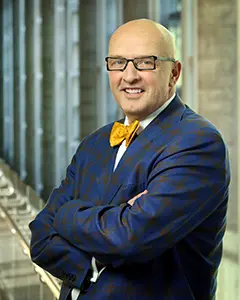
Corporate Vice Chairman
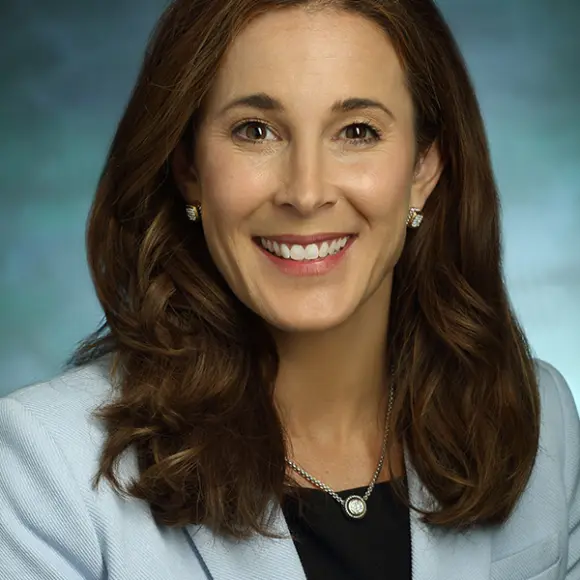
President
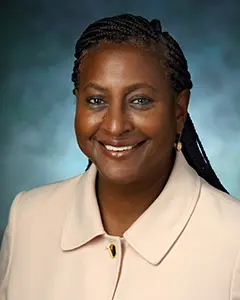
VP, Medical Affairs
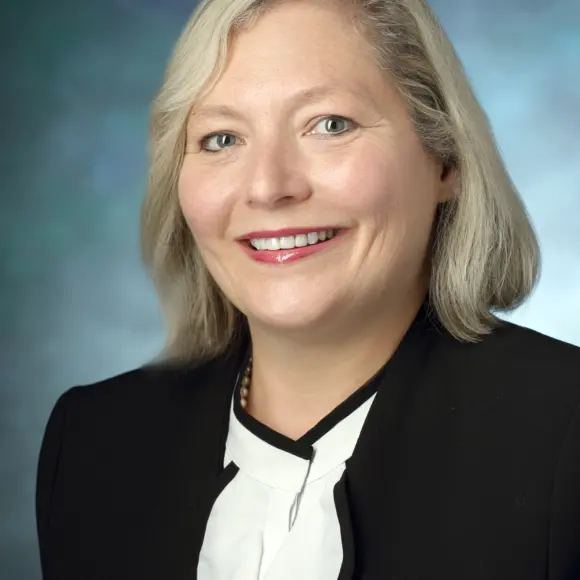
VP, Human Resources
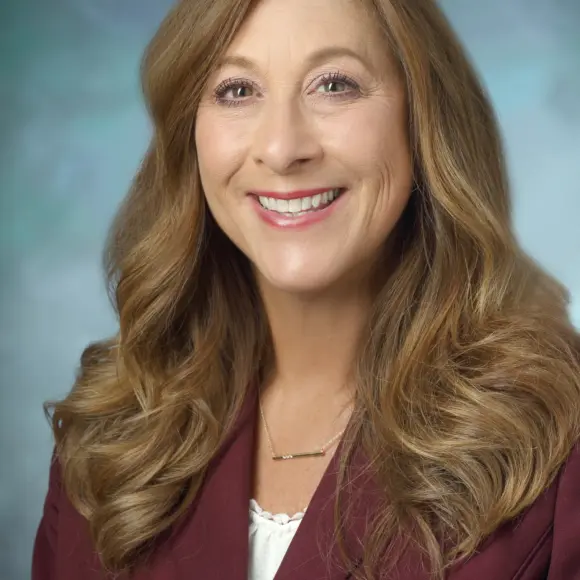
Executive Director, Organizational Excellence
Accreditations

The Joint Commission, formerly known as JCAHO, is a nonprofit organization that accredits rehab organizations and programs. Founded in 1951, the Joint Commision's mission is to improve the quality of patient care and demonstrating the quality of patient care.
Joint Commission Accreditation: Yes
Contact Information
6001 Montrose
Rd, Rockville, MD 20852







